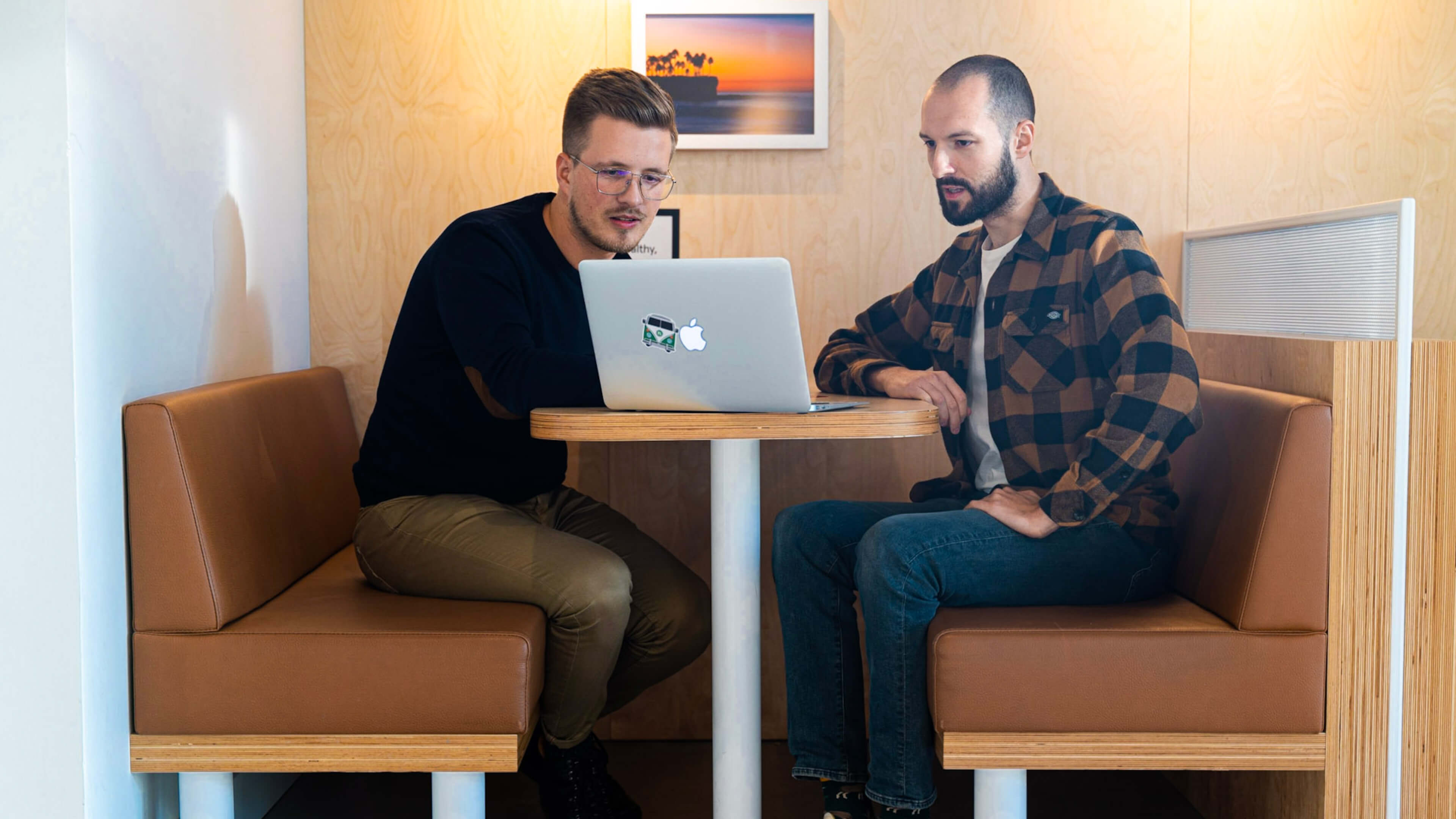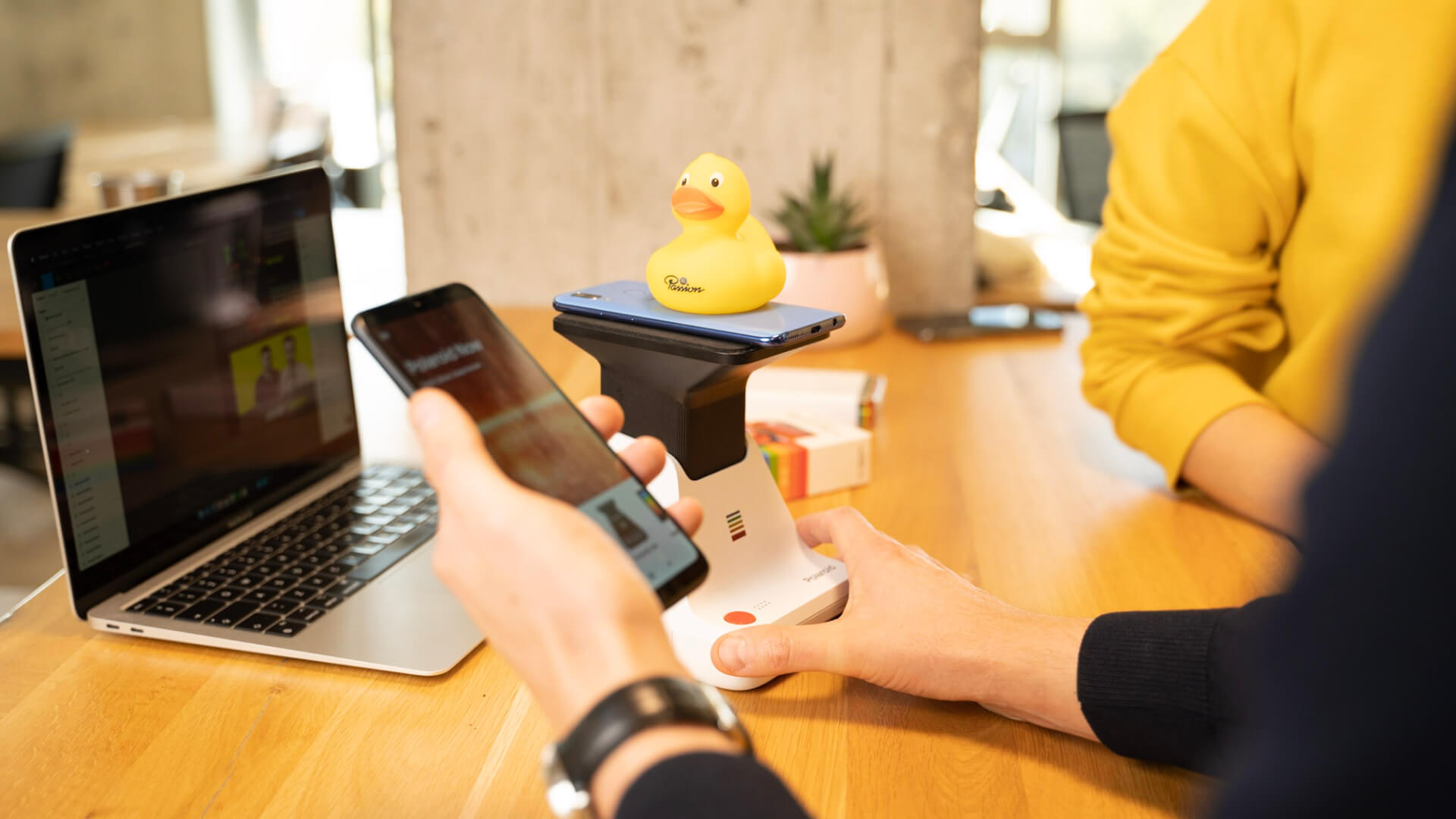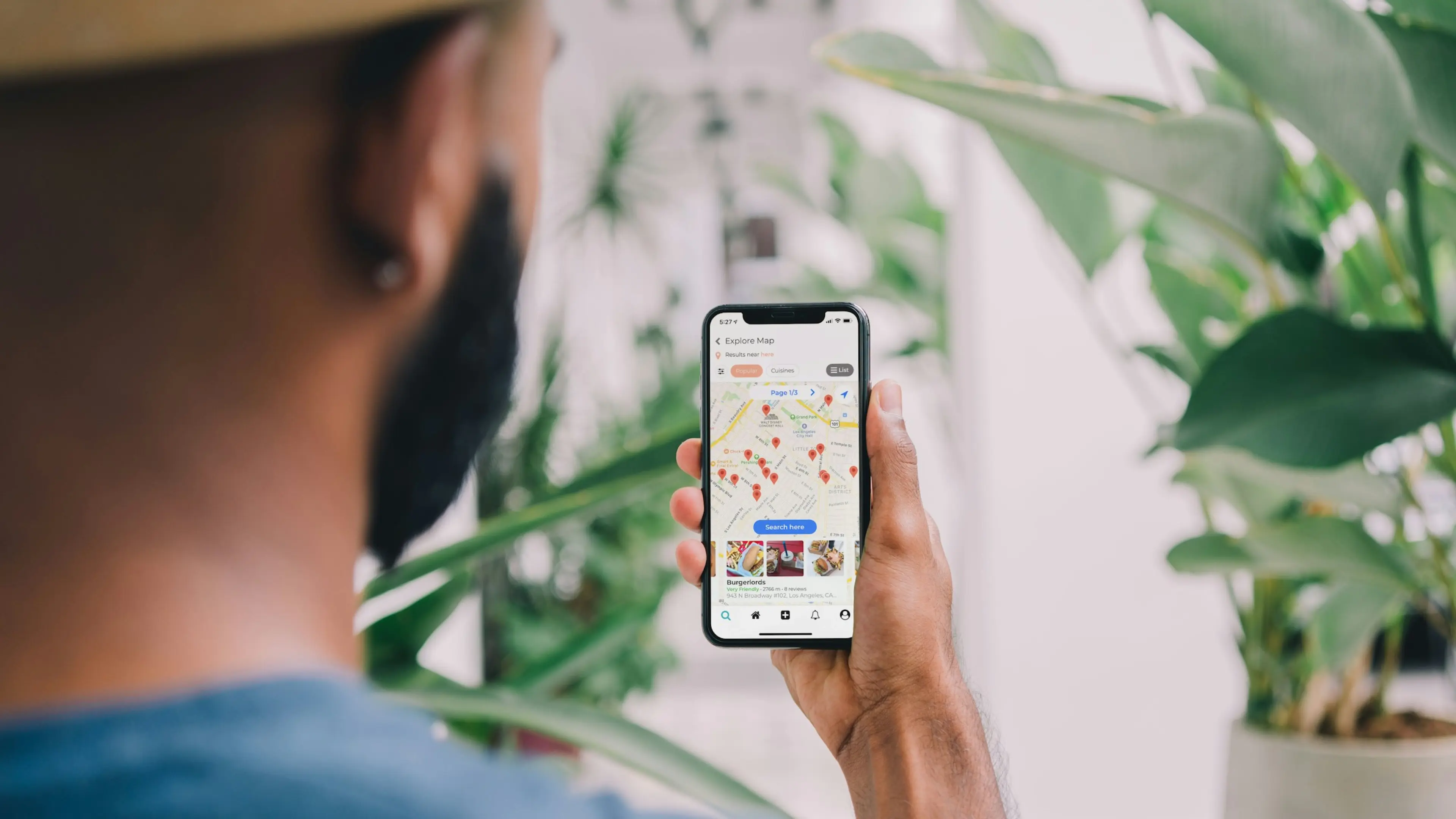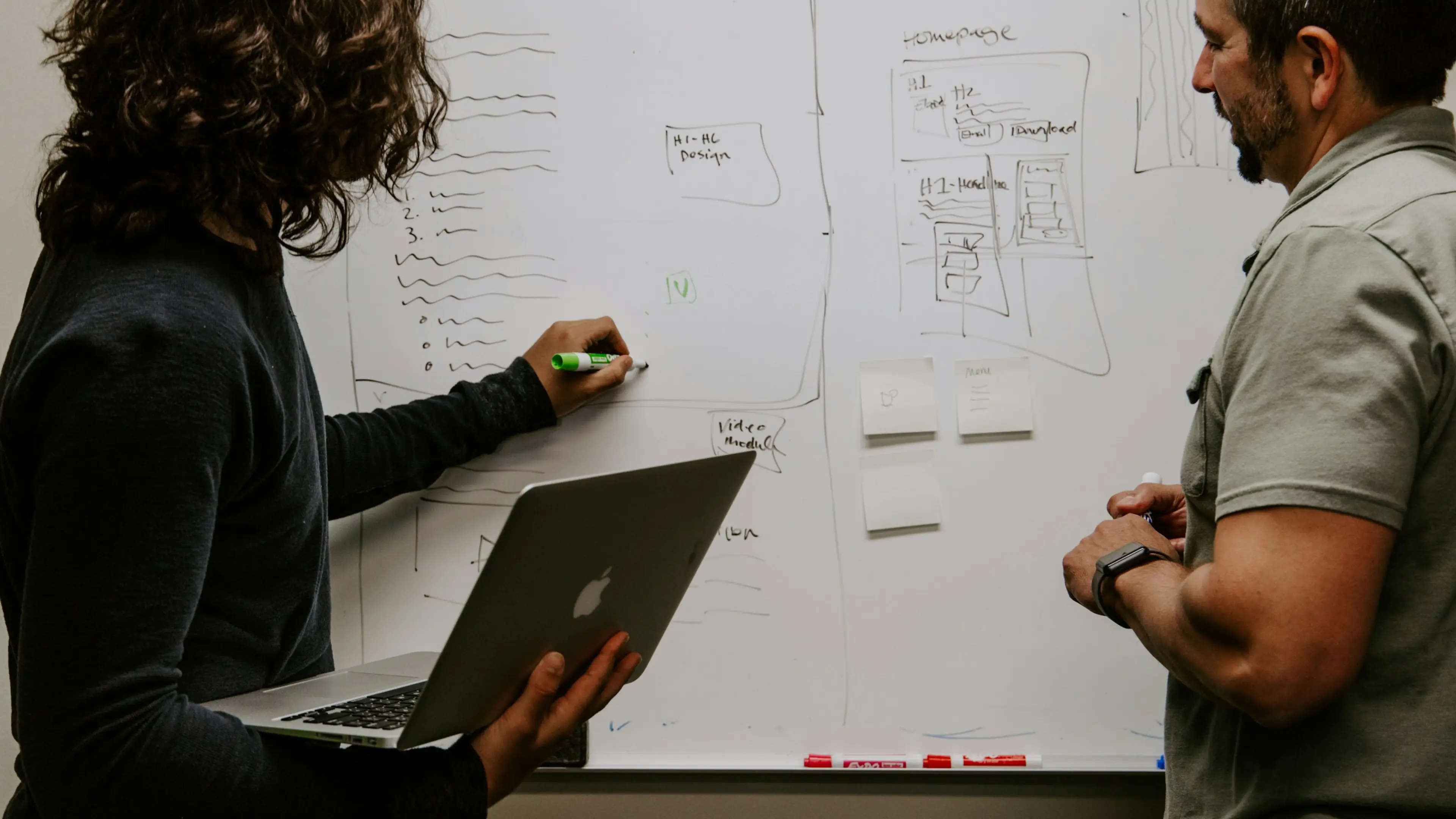12 January 2023 (updated: 12 January 2023)
How to Become a Developer — Discover our Stories, Motivations, and Tips
Chapters

An insiders’ perspective on how it is to shift your entire career and jump on the IT train. Bootcamps and IT schools slogans’ say on repeat it’s easy and worth it. We say it’s worth it, but what the whole journey looks like is a whole different story.
"Complete our bootcamp, become a developer, and earn a lot of money." - IT schools' advertisements shout. Is it as easy as they say? I want to tell you my story and introduce my colleagues’ who have also changed their professions.
Monika Zyznowska

I was a pharmacist. After two years of working in a pharmacy, I felt that it wasn’t something that I wanted to do for the rest of my life. Programming wasn’t the first thought, but it seemed like it was combining creativity and exciting challenges. So I decided to try it out. At first, just at home, and then when I was sure that web app development could be something for me, I took part in a bootcamp. It was a very demanding time. I finished it when the pandemic began, and there weren’t any job offers for juniors.
After six months, I found the DareIT mentoring program and I created a new project with my mentor. In the meantime, I sent many resumes, but only one recruiter contacted me and the recruitment process was unsuccessful. Finally, I was accepted for an internship. I was happy but at the same time, I felt weird that I would again have to start my career from the beginning. During my internship, I found an EL Passion job offer, came to an interview, and here I am. The process of becoming a developer took me over two years. It was emotionally exhausting, but now I'm incredibly proud of myself.
Wojciech Dybikowski

I studied chemical engineering. The biggest motivation to look for something else was the small chances of getting a job at my dream place. I like solving problems, discovering, and improving things. While watching many YouTube videos about developers and their work, I realized I could find everything I was looking for in the IT field. I started doing Udemy courses, one after another, and eventually, it led me to my first non-paid internship.
All that happened during the last year of my Master's. After the internship, I decided to focus on my Master's thesis and only after I went back to studying programming intensively and again I got another non-paid internship.
It was a tough time because I had to work part-time, take part in the internship, train my skills at home, and go through many interviews. But I knew I was close to achieving my goals, so I had to grin and bear that draining process. Not everyone in my family supported my way of becoming a developer — some viewed it as an unsure and unsteady path with no prospects. Finally, I succeeded and got my first job as a Junior Front-end developer. What made me stand out from other candidates was taking part in internships and my stubbornness in pursuing my goals.
Anna Jędrzejko

I studied urban planning and worked in that profession for five years. Sadly to me, this industry has no future in Poland. Our field is taken over by architects that also have permission to work as urban planners. This was the reason that made me look for a new profession. I tried my hand at the automotive industry, but it didn’t feel like it was something for me. Meanwhile, I was programming for fun at home and eventually, it felt natural to me to look for opportunities in IT. The beginnings were tough, though. I went through numerous interviews and none of them resulted in a job offer. So I took a step back and started learning again, mostly React. I created my portfolio on GitHub and began appearing at meetups and workshops for women. That’s how I found the DareIT mentoring program. It allowed me to meet people from EL Passion. Afterwards, I took the initiative and reached out to the company. Unfortunately, they didn’t have any job offers at that time, but they invited me to an interview once something appeared. It was a complicated process but I’m happy I hadn’t given up.
How to become a developer? — Tips for beginners and a necessary push for those hesitating
I’m sure you can relate to the stories above, at least to some extent. Switching your careers ain’t easy and it definitely takes a lot of courage, persistence, and hard work.
It’s worth it, but it certainly isn’t easy, so my first and the most important piece of advice I can give you is: don’t listen to people who paint it as a walk in the park. Do your research, before you drop everything and start to learn programming.
And apart from that:
Practise technical skills
Rome wasn't built in a day. It's going to take time to become good at a new profession. It’s not enough to take part in a bootcamp or finish several tutorials on YouTube (although it’s always better to try those too). It’s just that you need to spend long, draining hours learning and practicing. It’s helpful to visualize that in your future job, you will have to create real (and working) products, so you have to have solid basics. For instance, if you want to renovate your house, you will look for someone who knows exactly how to do it, won’t you? The same would apply to your core technical skills in your future IT post.
Find people to help you review your code and provide feedback
Practising your skills on your own is one thing, but there’s only as much you can learn by yourself. Finding someone more experienced to review your code and provide functional feedback is invaluable because of two things: you can learn faster and on your own mistakes, but also you learn how it is to cooperate in a team, which is your reality as a commercial developer. Try browsing through online communities, meetups, or maybe the bootcamp you applied for; it’s always easier to learn when you’re not alone.
 Being a developer also means being a good communicator and a team player, it's not a party for one (as it may seem).
Being a developer also means being a good communicator and a team player, it's not a party for one (as it may seem).
Work on your soft skills
Some people see developers as geeks sitting in a dark basement trying to hack the world. And well, yes, of course, being a bit geeky can help you in this industry, but in the end, we’re all just ordinary people and that need to get along when on a project. Working on your social and communication skills may help you and your team not only to have a good vibe and atmosphere but also to be more efficient and deliver results more quickly. Good communication is key in software development and an indispensable part of any developer’s job; be it with your team or with a client.
Better your English
Most materials and software documentation is written in English and also, when you write code, you write it in English (kinda). Very often IT companies cooperate with foreign clients, so English proficiency is necessary. If you think your English is not up to standard, think of improving your language level.
Find support
Find people who will understand your path. There are various events where you can meet people just like you at the beginning of your journey, and people who are experienced and can help you with their guidance. Don’t get discouraged by the lack of support from your close ones. It’s a very bold decision, and not everyone will understand it, especially at a starting point.
 Don't get discouraged and look for new opportunities to test your skils.
Don't get discouraged and look for new opportunities to test your skils.
Be patient and don't be afraid to take the first step
The number one advice, however hard to apply, is still this: be patient if things don’t go your way, especially when you take your first steps. An internship may be a good idea, it allows you to gain experience and still learn while in a real-life setting for a developer. After that, it is way easier to find a new job or else, it is not uncommon for the company where you did your internship to have a perfect job opportunity for you.
Becoming a developer — worth it or not?
A developer’s job isn’t just easy money as some ads will try to tell you. It’s an exciting path for problem solvers, that’s for sure, but you need to be mindful of the challenges ahead of you — technologies are constantly changing, so your learning never stops and, at the same time, there are a lot of products with legacy code, so you need to have some knowledge about that too.
If you choose this path, I’m sure you will come across inspiring people, job satisfaction, and exciting experiences. For us, it was worth it, but everyone has to answer the question for themselves. Meanwhile, we’ve got some resources to help you decide if it’s for you:
Resources for a programming beginner
- FullstackOpen — Learn React, Redux, Node.js, MongoDB, GraphQL and TypeScript in one go!
- NetNinja (YouTube channel)
- CSS Tricks
- You don't know JS (GitHub repo)
- Codewars
- Flexbox Froggy
- Learn Git Branching
- Coding Garden (YouTube channel)
- Refactoring Guru (Design Patterns)
- REST Resource Naming Guide (REST API)
- SQLBolt
Check out also
- EL Passion's 2022 Bootcamp - Why we did it, how we did it, and what's next. (And a thing about finding reliable sources online when you learn programming).
You may also like

Native vs Cross-Platform App Development: Which is Right for Your Business
3 September 2024 • Maria Pradiuszyk




